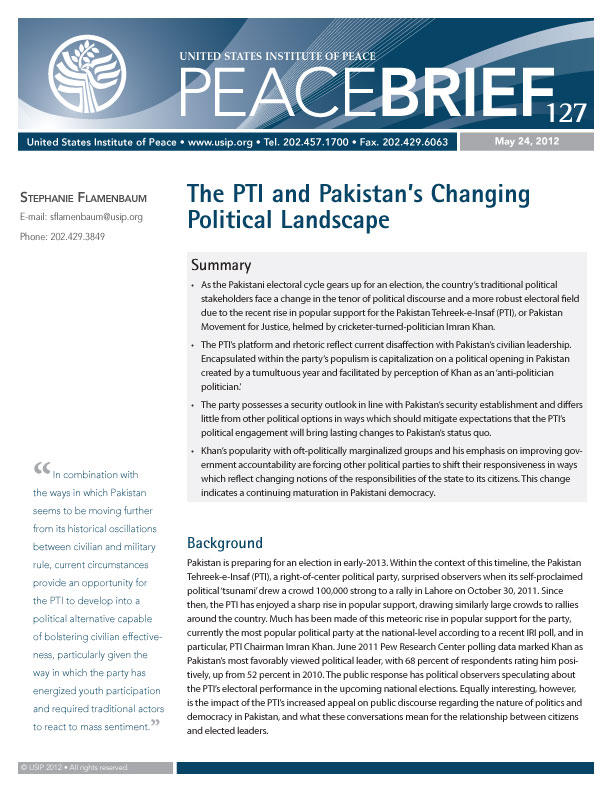This brief examines changes in the Pakistani political landscape in advance of the country’s election, expected in early-2013.

Summary
-
As the Pakistani electoral cycle gears up for an election, the country's traditional political stakeholders face a change in the tenor of political discourse and a more robust electoral field due to the recent rise in popular support for the Pakistan Tehreek-e-Insaf (PTI), or Pakistan Movement for Justice, helmed by cricketer-turned-politician Imran Khan.
-
The PTI's platform and rhetoric reflect current disaffection with Pakistan's civilian leadership. Encapsulated within the party's populism is capitalization on a political opening in Pakistan created by a tumultuous year and facilitated by perception of Khan as an ‘anti-politician politician.'
-
The party possesses a security outlook in line with Pakistan's security establishment and differs little from other political options in ways which should mitigate expectations that the PTI's political engagement will bring lasting changes to Pakistan's status quo.
-
Khan's popularity with oft-politically marginalized groups and his emphasis on improving government accountability are forcing other political parties to shift their responsiveness in ways which reflect changing notions of the responsibilities of the state to its citizens. This change indicates a continuing maturation in Pakistani democracy.
About this Brief
This brief examines changes in the Pakistani political landscape in advance of the country's election, expected in early-2013.
Stephanie Flamenbaum is a senior program assistant for the Afghanistan and Pakistan programs in USIP's Center for Conflict Management.